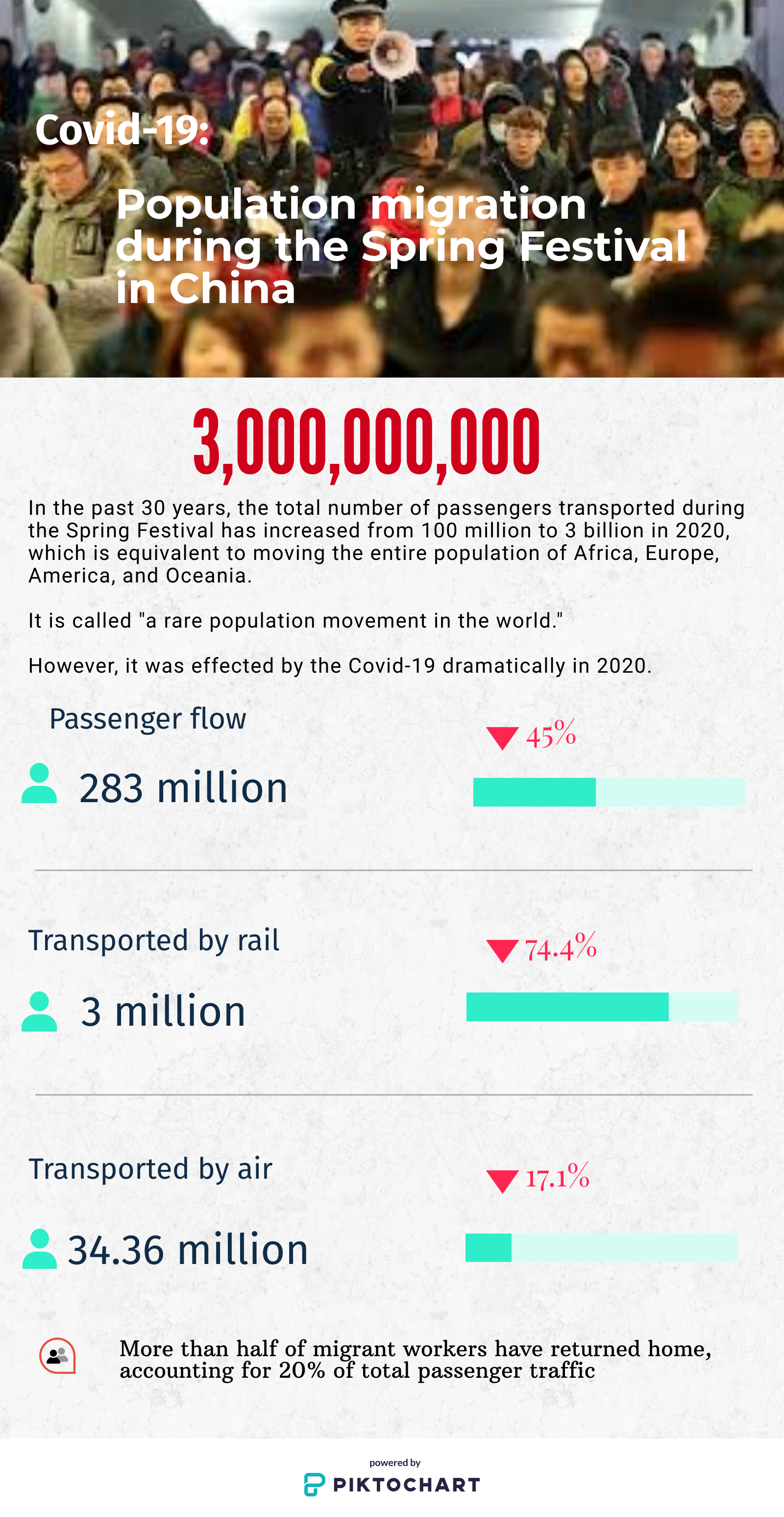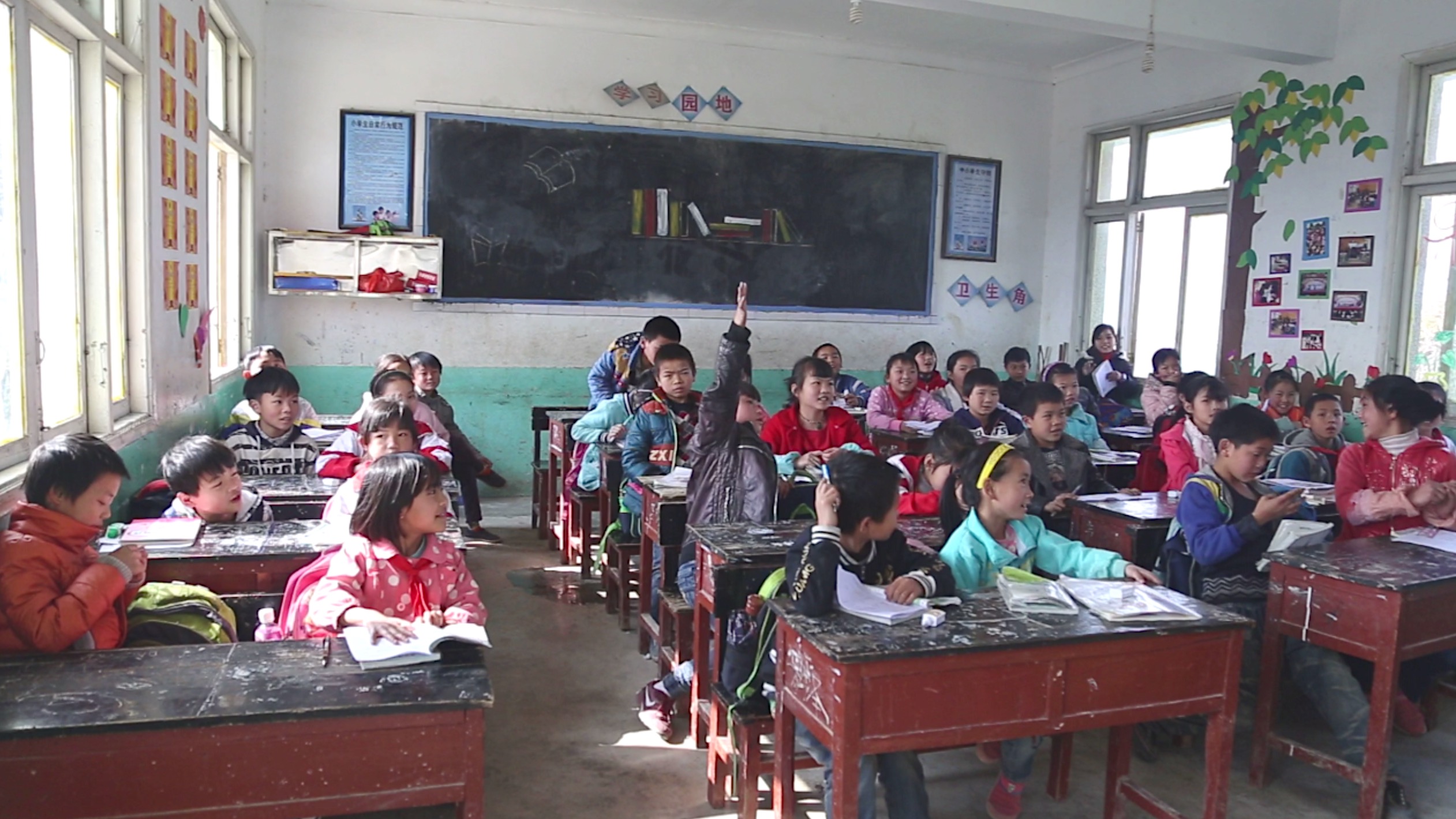Why did rural parents who moved to cities for employment make such a decision at the expense of their rewarding family life?
It is 9 PM and after a busy day it is time for Guozhen Wu to video call with her son, Xiaoshan. She is wearing her son’s favourite red dress as she sits on the sofa waiting for Xiaoshan to call. For Guozhen, this is the most anticipated moment of her day.
“Mum, the summer vacation is coming soon, and I want to spend with you and Dad. When will you come to pick me up?” Xiaoshan asks.
Guozhen said that her son looks forward to the summer vacation more so than any other time of the year. In the past, she would have taken Xiaoshan with them to Kunming, the city they are currently working in, for two months. However, this year they are unable to do this because of the pandemic. When he was told the bad news, Xiaoshan looked very unhappy and so Guozhen promised that the next time they see each other, she will take him to buy his favorite Spider-Man figure.
“I have not seen him for three months, and I miss my son so much,” Guozhen said. She then said,
“When I missed him before, I could only look at his picture on my phone. Now we can use WeChat to talk to him every day if he is not around us.”
Xiaoshan still lives and studies in his hometown with his grandparents, but his mother Guozhen and father, Wang Hao, live and work in Kunming, 500 kilometers away from Xiaoshan where they run and own a breakfast store.
Business is good for the family and this allows Guozhen to send 5,000 Chinese yuan (550 pounds) home every month to cover the living expenses for Xiaoshan and his grandparents. However, Guozhen still feels very helpless and sad that she has had to give up raising her son directly just to make money.
“I made choices many times. Every time I return to my hometown to work because I cannot bear to leave my children alone. However, we could only earn 3,000 yuan (350 pounds) a month in my hometown, so we finally had to leave because the salary was insufficient to support our family, “Said Guozhen.
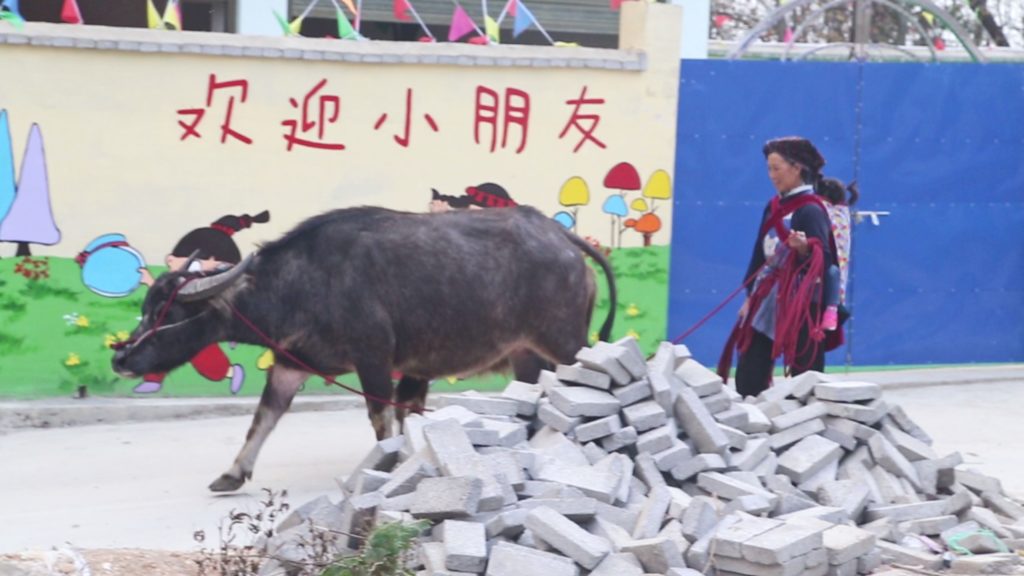
A few years ago, Guozhen’s family owed a debt of 200,000 yuan (20 thousand pounds) from building a house in their hometown. In the past two years, Guozhen and her husband have had to move to many cities in search of a way to make more money. These unsettled living conditions have prevented them from taking their children along with them.
Guozhen has been looking forward to the day that their family’s financial situation will improve so her and her husband can return to their hometown to live with their son. “I hope that in the future we will be able to reunite as a family and we can take care of my parents who are in poor health, “said Guozhen.
Guozhen’s family is just one family that has been forced to leave their elderly parents and children behind in order to make money. According to a survey conducted by the Research Office of the State Council of the People’s Republic of China in 2019, the number of rural workers in China had reached over 290 million, and the number of children left in these rural towns was 9.02 million.
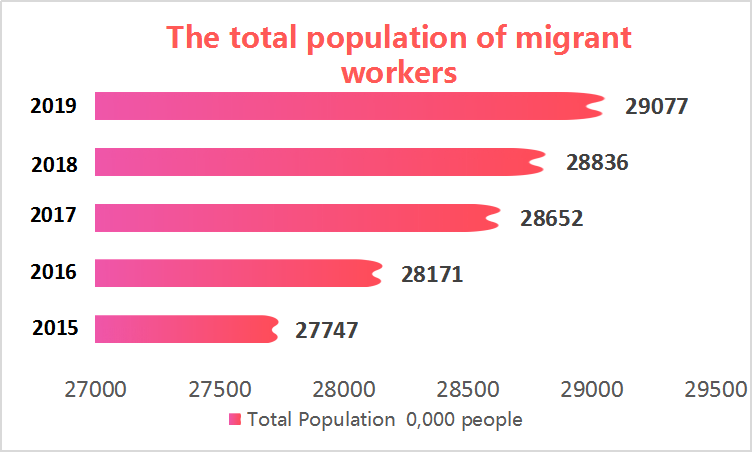
The main cause for such a significant number of rural labor workers trying to secure jobs in cities, is the huge gap between urban and rural per capita income. According to the data from National Bureau of Statistics in 2018, the urban per Capita residents’ income was 2.7 times that of rural residents. Guozhen earns 7,000 yuan (£800) a month in the city, but only about 2,000-3,000 yuan (£250-£350) a month in the urban market.
Furthermore, for most rural workers their financial pressure is not the only reason for them to leave their children behind in the countryside. Whether their children can receive education in the city and which city offers the best educational conditions are also factors that affect their decision-making.
There is a system called the Household Registration System (hukou) to limit migration within China. It divides Chinese society into urban and rural populations based on a person’s place of birth.
People who are born with either form of hukou enjoy different aspects of social welfare. For example, people in cities can receive better education than those in rural areas. However, if the children of migrant workers want to attend the public school, which is free in the cities, they must obtain the urban hukou. That being said, it can be very difficult for migrant workers to obtain this.
If a person does not have an urban hukou, the life and work of rural workers is troublesome. For Example, without the urban hukou, a person could easily lose their job as many companies are unwilling to spend the energy and money to provide them with hukou, leading to a vicious cycle.
The peasant unions kept their children in the countryside not only because they cannot obtain the urban hukou, but because the education conditions in rural areas are good and often supported by the government.
“children studying in the countryside can get lunch for free and can have nutritional subsidies such as fruits and milk. Compared to illegal private schools in cities, teachers in rural primary schools are recruited through the local government. The life and educational conditions of our children can be guaranteed, so we feel relieved to leave them in the countryside,” said Wang, a father of a boy who was left in his hometown as his parents moved away for work.
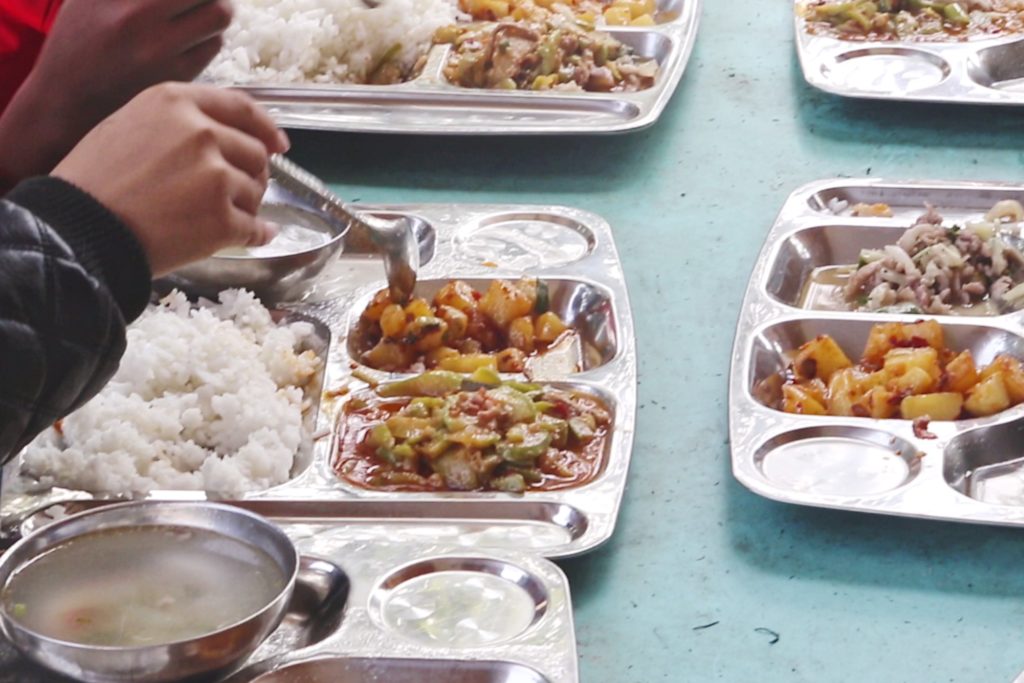
In 2019, the Chinese government invested 36 billion Chinese yuan in improving the conditions of rural schools, such as creating new school buildings and renovating current buildings. According to the Ministry of Education, families who suffer with financial difficulties have also received financial aid. Furthermore, a report issued by the General Office of the State Council in 2019 stated that since 2015, the government has supported rural teachers. To this date, the level of teaching and quality of life for rural teachers has been improved.
Free education for children of rural workers within Chinese countryside towns is a great investment, allowing the children to eventually earn more money to support their family who currently live in the city. That is why most migrant workers have made the same decision to leave their children in the countryside. However, they must face the challenges and difficulties that go along with this.
“Every year we can only return home to accompany with my son during the Spring Festival. And I found that the personality of my son is quite different with before. He is so sensitive and does not want to talk to people. I think that he is much more introverted than before, “said Guozhen. She thinks that it might be because they unavoidably give less attention to Xiaoshan.
Xiaoyang Chen, a teacher in a rural primary school has created a survey that explores the effects of children being separated from their parents due to city work on their mental health. The survey found that 70% of these children feel lonely and 50% of them would feel anxious about their future and their parents.
“In addition to studying in the school, many students in our class have to take on family responsibilities at a young age to take care of their grandparents and younger brothers and sisters at home. They have to do things such as cooking and cleaning. Hence, many of them seem more mature than other children, which makes me heartbreaking,” Said the teacher.

Being there to watch your children grow is an important part of a parent’s life, yet rural workers must make a very difficult choice when they move away for work. Traditional Chinese culture within the family dynamic is set to give priority to their children’s education and future. The main reason for rural parents working away from home is to gain enough money to put their children through school, according to Bin Li, professor and director of the Behavioral and Experimental Economics Research Center at the China University of Finance and Economics.
“Rural workers’ pay little attention to life satisfaction and happiness, which are basically seen by them as the inevitable price of high income,” said professor Li.
But Professor Jingyi Meng, who specialises in behavioral economics at Shanghai University of Finance and Economics, has a different view. She called the income needs of rural workers and the need to accompany their children a “dilemma.” She said that current literature found that making money for parents can increase their happiness to a certain extent.
Meanwhile, as to whether China’s economic development has influenced the decision of more rural workers to move to cities for employment, Professor Meng believes that China’s economic success and the “dilemma” are symbiotic, and it is impossible to judge who is the cause or the result. This argument is further supported by Professor Li. He believes that Chinese families often make decisions rationally and that their economic behaviors are optimised choices under the constraints of cultural and social norms.
“The issue may be about whether the changes in China bring about changes in social culture and social norms, leading to change human behavior. I think change is happening, but it is not a big one. Going out to work is a very rational choice for them. When the expected net benefit of going out to work is lower than the opportunity cost, farmers will not choose moving to cities for employment, ” Professor Li said.
Guozhen knows exactly what her decision represents.
“We cannot earn money where our children can go to school, and our children cannot get an education where we can earn money. This is a serious problem that all rural workers must deal with. For my child to get an education, leaving him in the countryside was a decision I had to make, ” Guozhen said.
Click the video to know about the route of migration of rural workers.
